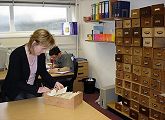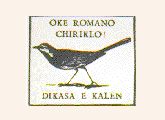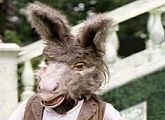Cor, blust, squit! Dialects and accents of the British Isles
A dialect is a variation in the grammar and vocabulary of a language, generally associated with a particular region. An accent is a way of pronouncing a language, and tends to be linked with a particular dialect. Dialects and accents play an important social role in establishing group identities.
The British Isles are home to many languages, dialects, and accents.'Standard English' is also a dialect, but the variety that is used in print and taught in schools. With higher status and more prestige than the vernacular or regional dialects, this dialect is overwhelmingly thought of as 'proper' English: "Millions of people who have English as their mother-tongue are persuaded that they 'can't speak English'," observed Norwich-born linguist Peter Trudgill in 1974. Thirty years later, in the era of globalisation, Trudgill and other linguists see an urgent need to study minority languages and dialects before they vanish.
This month, Unesco is celebrating linguistic and cultural diversity with International Mother Language Day on February 21st. Next month, the University of Leeds will be hosting a conference on Dialect and Folk Life Studies in Britain: The Leeds Archive of Vernacular Culture in its Context on March 19th.
Collections
- Yorkshire dialect bibliography: compiled by Frank James Taylor (fl. 1916-1926) of the Yorkshire Dialect Society
- Hallam's Dialect Collections: Thomas Hallam (died 1895) was a member of the English Dialect Society
- Angelina Parker (fl 1878-1926): collected Oxfordshire dialect words and nursery rhymes
- John Waddington-Feather (born 1933): Anglican priest and writer; researched English dialects
- Lincolnshire Folk Archive: established in the early 1960s to preserve folk songs from Lincolnshire and South Humberside, building on the studies of composer Percy Grainger (1882-1961)
- Robert Anderson (1770-1833): Cumbrian antiquary and poet, and author of ballads
- Frederic William Moorman (1872-1919): Professor of English Language at the University of Leeds, and Yorkshire dialect poet
- Benjamin Preston (1819-1902): Yorkshire dialect poet
- Rev. Addison Crofton (fl. 1902): collected nursery rhymes, country songs, and words used in children's games
- Thomas Darlington (1864-1908): studied Welsh dialectal boundaries
- Grace Ellis (1844-1927): studied Welsh dialects
- Scottish Anthropological and Folklore Society: founded by the Edinburgh and Lothians Branch of the Royal Anthropological Institute in 1922
- TF O'Rahilly (1883-1953): an authority on Irish dialects
- Edmund Crosby Quiggin (1875-1920): researched the dialect of Donegal
- Donald Mackinnon (1839-1914): author of The dialects of Scottish Gaelic, 1890s.
- Robert Donat (1905-1958): actor; undertook elocution lessons to shed his broad Lancashire accent
- First South Wales Coalfield Project: oral history, 1972-1974
- Womens' Work Experiences in the Swansea Valley Study: reminiscences of women in the Swansea Valley of the first seven decades of the last century
Related links
- International Mother Language Day: February 21, 2005 (Unesco)
- Foundation for Endangered Languages
- British Association for Applied Linguistics: forum for people interested in language and the applications of linguistics
- British Library Sound Archive: accents and dialects collection
- National Centre for English Cultural Tradition: the study of all aspects of folklore throughout the country (University of Sheffield)
- Museum of Welsh Life (Cardiff)
- Centre for Scottish and Irish Studies (University of Aberdeen)
- The Routes of English: the history of English (BBC Radio 4)
- Oral History Society: recording 'living history'
"Cor, blust, squit!" is Norfolk dialect for "Gosh, heavens, pull the other one" - with thanks to Eve Stebbing, Spin Off Theatre.
You can receive regular updates on our special features by joining our mailing list.






